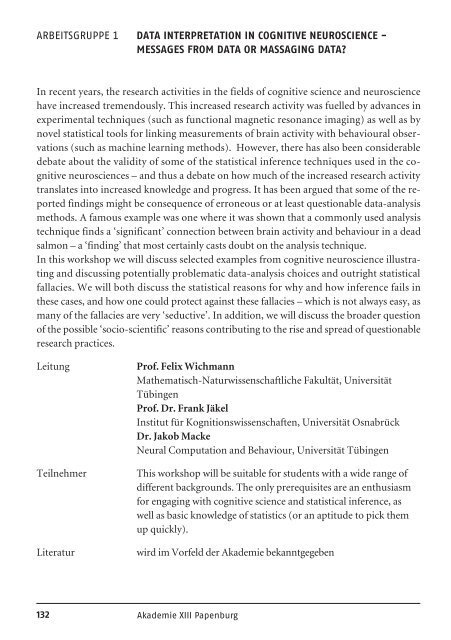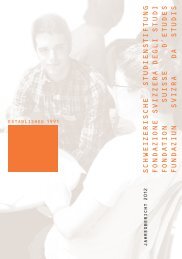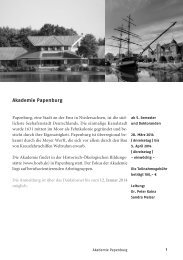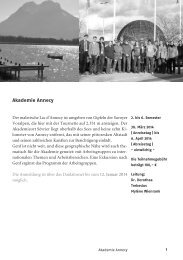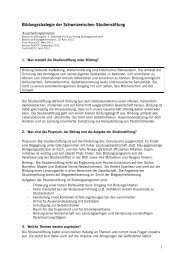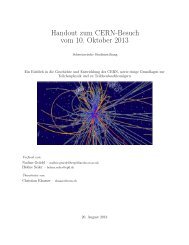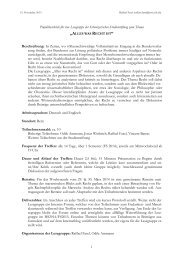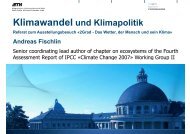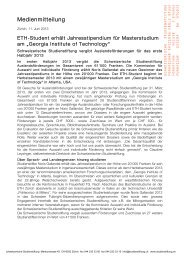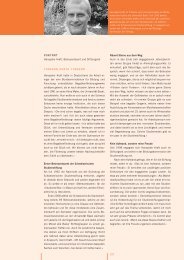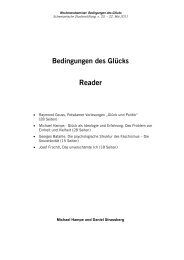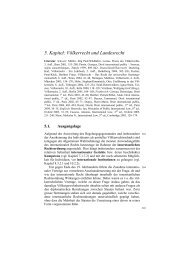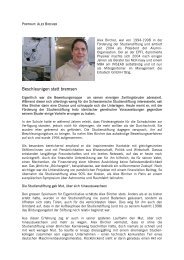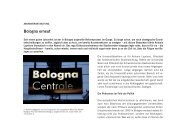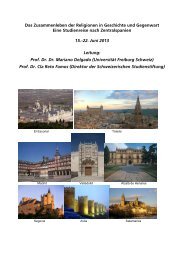Sommerakademien der deutschen Stiftung - Studienstiftung.ch
Sommerakademien der deutschen Stiftung - Studienstiftung.ch
Sommerakademien der deutschen Stiftung - Studienstiftung.ch
Erfolgreiche ePaper selbst erstellen
Machen Sie aus Ihren PDF Publikationen ein blätterbares Flipbook mit unserer einzigartigen Google optimierten e-Paper Software.
Arbeitsgruppe 1 Data Interpretation in Cognitive Neuroscience -<br />
messages from Data or Massaging Data?<br />
In recent years, the resear<strong>ch</strong> activities in the fields of cognitive science and neuroscience<br />
have increased tremendously. This increased resear<strong>ch</strong> activity was fuelled by advances in<br />
experimental te<strong>ch</strong>niques (su<strong>ch</strong> as functional magnetic resonance imaging) as well as by<br />
novel statistical tools for linking measurements of brain activity with behavioural observations<br />
(su<strong>ch</strong> as ma<strong>ch</strong>ine learning methods). However, there has also been consi<strong>der</strong>able<br />
debate about the validity of some of the statistical inference te<strong>ch</strong>niques used in the cognitive<br />
neurosciences – and thus a debate on how mu<strong>ch</strong> of the increased resear<strong>ch</strong> activity<br />
translates into increased knowledge and progress. It has been argued that some of the reported<br />
findings might be consequence of erroneous or at least questionable data-analysis<br />
methods. A famous example was one where it was shown that a commonly used analysis<br />
te<strong>ch</strong>nique finds a ‘significant’ connection between brain activity and behaviour in a dead<br />
salmon – a ‘finding’ that most certainly casts doubt on the analysis te<strong>ch</strong>nique.<br />
In this workshop we will discuss selected examples from cognitive neuroscience illustrating<br />
and discussing potentially problematic data-analysis <strong>ch</strong>oices and outright statistical<br />
fallacies. We will both discuss the statistical reasons for why and how inference fails in<br />
these cases, and how one could protect against these fallacies – whi<strong>ch</strong> is not always easy, as<br />
many of the fallacies are very ‘seductive’. In addition, we will discuss the broa<strong>der</strong> question<br />
of the possible ‘socio-scientific’ reasons contributing to the rise and spread of questionable<br />
resear<strong>ch</strong> practices.<br />
Leitung<br />
Teilnehmer<br />
Literatur<br />
Prof. Felix Wi<strong>ch</strong>mann<br />
Mathematis<strong>ch</strong>-Naturwissens<strong>ch</strong>aftli<strong>ch</strong>e Fakultät, Universität<br />
Tübingen<br />
Prof. Dr. Frank Jäkel<br />
Institut für Kognitionswissens<strong>ch</strong>aften, Universität Osnabrück<br />
Dr. Jakob Macke<br />
Neural Computation and Behaviour, Universität Tübingen<br />
This workshop will be suitable for students with a wide range of<br />
different backgrounds. The only prerequisites are an enthusiasm<br />
for engaging with cognitive science and statistical inference, as<br />
well as basic knowledge of statistics (or an aptitude to pick them<br />
up quickly).<br />
wird im Vorfeld <strong>der</strong> Akademie bekanntgegeben<br />
132<br />
Akademie XIII Papenburg


